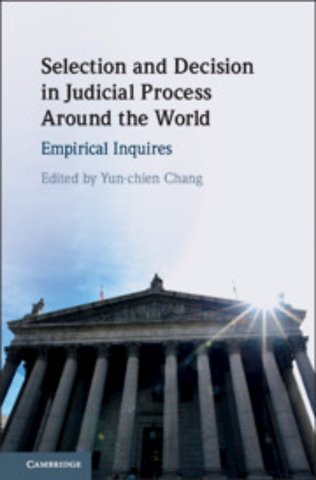Selection and Decision in Judicial Process around the World
Empirical Inquires
Gebonden Engels 2019 9781108474870Samenvatting
This book empirically explores whether and under what conditions the judicial process is efficient. Three specific issues are addressed: first, disputants self-select into litigation. Do they tend to bring cases with merit? Second, filed cases differ in their social import. Do courts select more important cases to devote more resource to? Third, courts establish precedents, affect resource allocation in the cases at hand, and influence future behaviours of transacting parties. Do courts, like Judge Posner asserts, tend to make decisions that enhance allocative efficiency and reduce transaction costs? Positive answers to the above questions attest to the efficiency of the judicial process. What drive efficient or inefficient outcomes are the selections and decisions by litigants, litigators, and judges. Their earlier selections and decisions affect later ones. Eleven chapters in this book, authored by leading empirical legal scholars in the world, deal with these issues in the US, Europe, and Asia.
Specificaties
Lezersrecensies
Inhoudsopgave
Rubrieken
- advisering
- algemeen management
- coaching en trainen
- communicatie en media
- economie
- financieel management
- inkoop en logistiek
- internet en social media
- it-management / ict
- juridisch
- leiderschap
- marketing
- mens en maatschappij
- non-profit
- ondernemen
- organisatiekunde
- personal finance
- personeelsmanagement
- persoonlijke effectiviteit
- projectmanagement
- psychologie
- reclame en verkoop
- strategisch management
- verandermanagement
- werk en loopbaan
